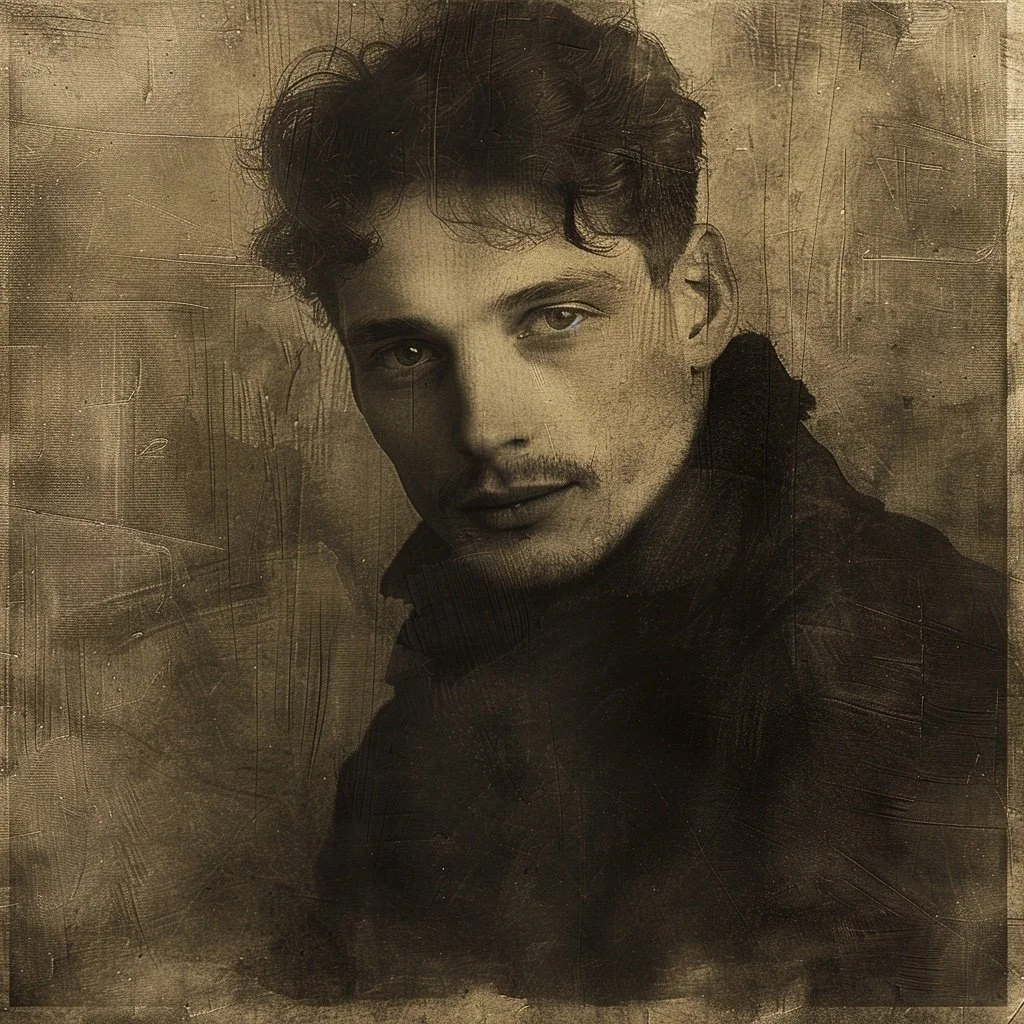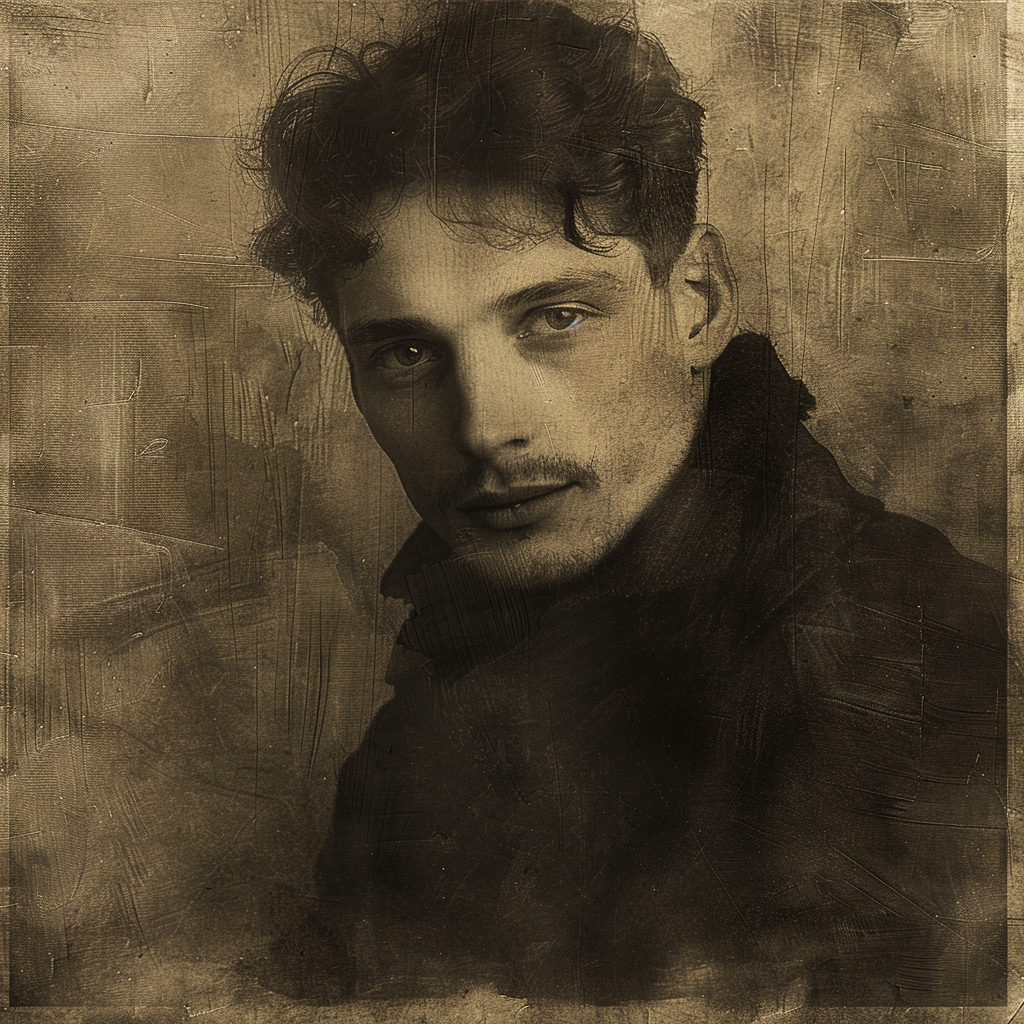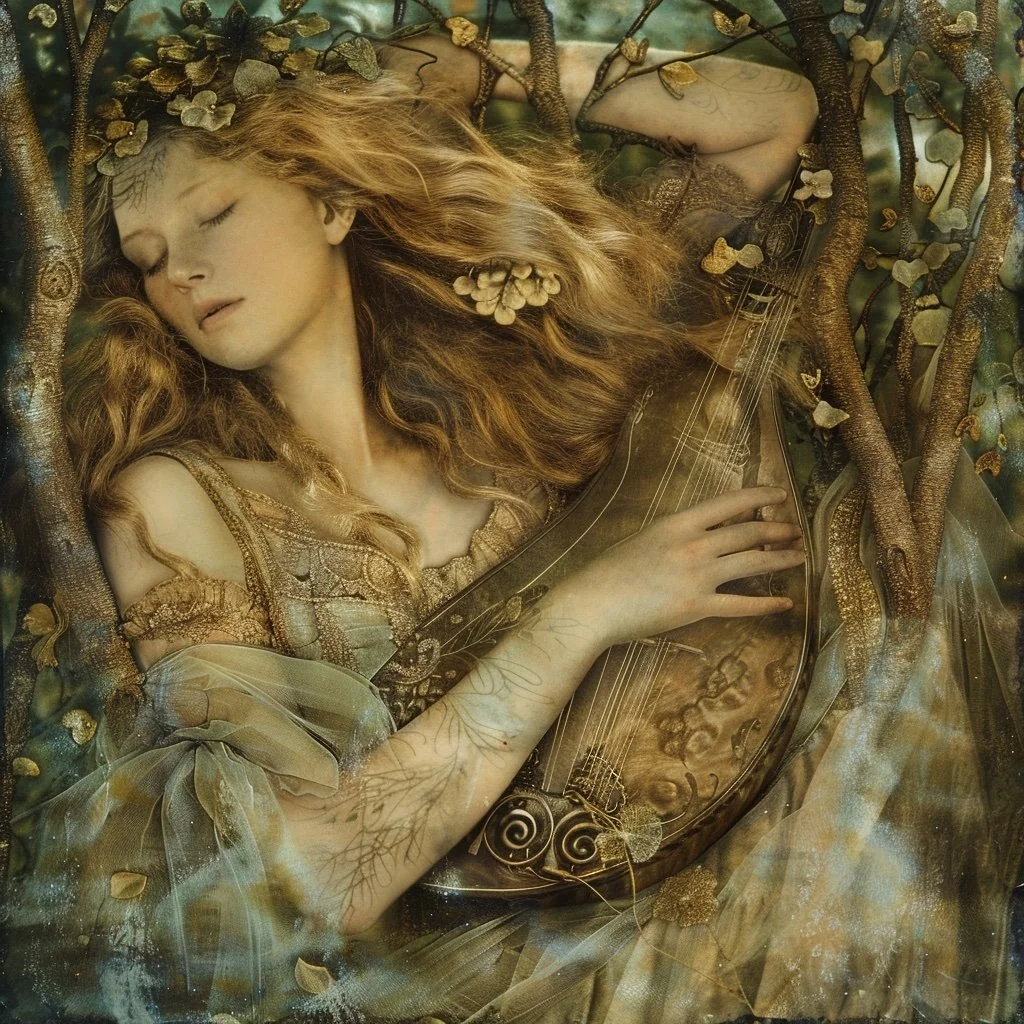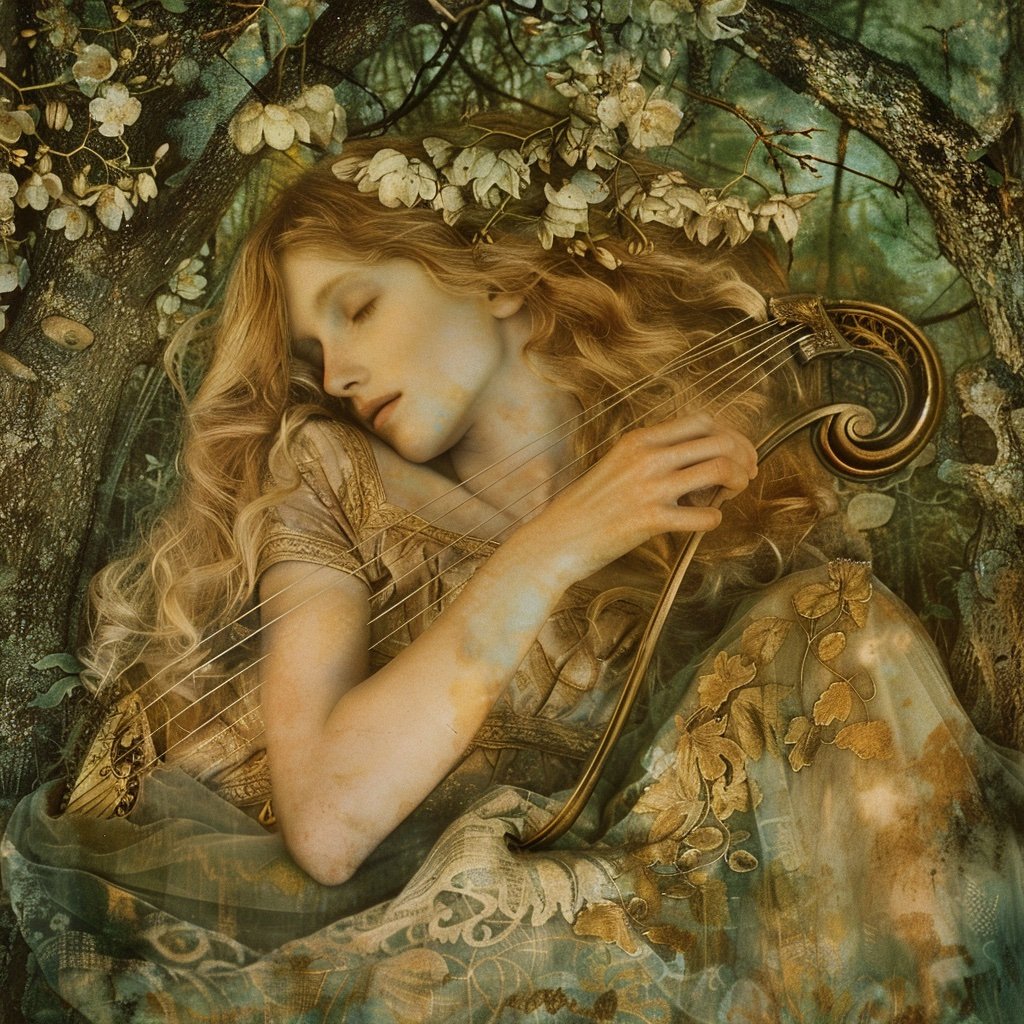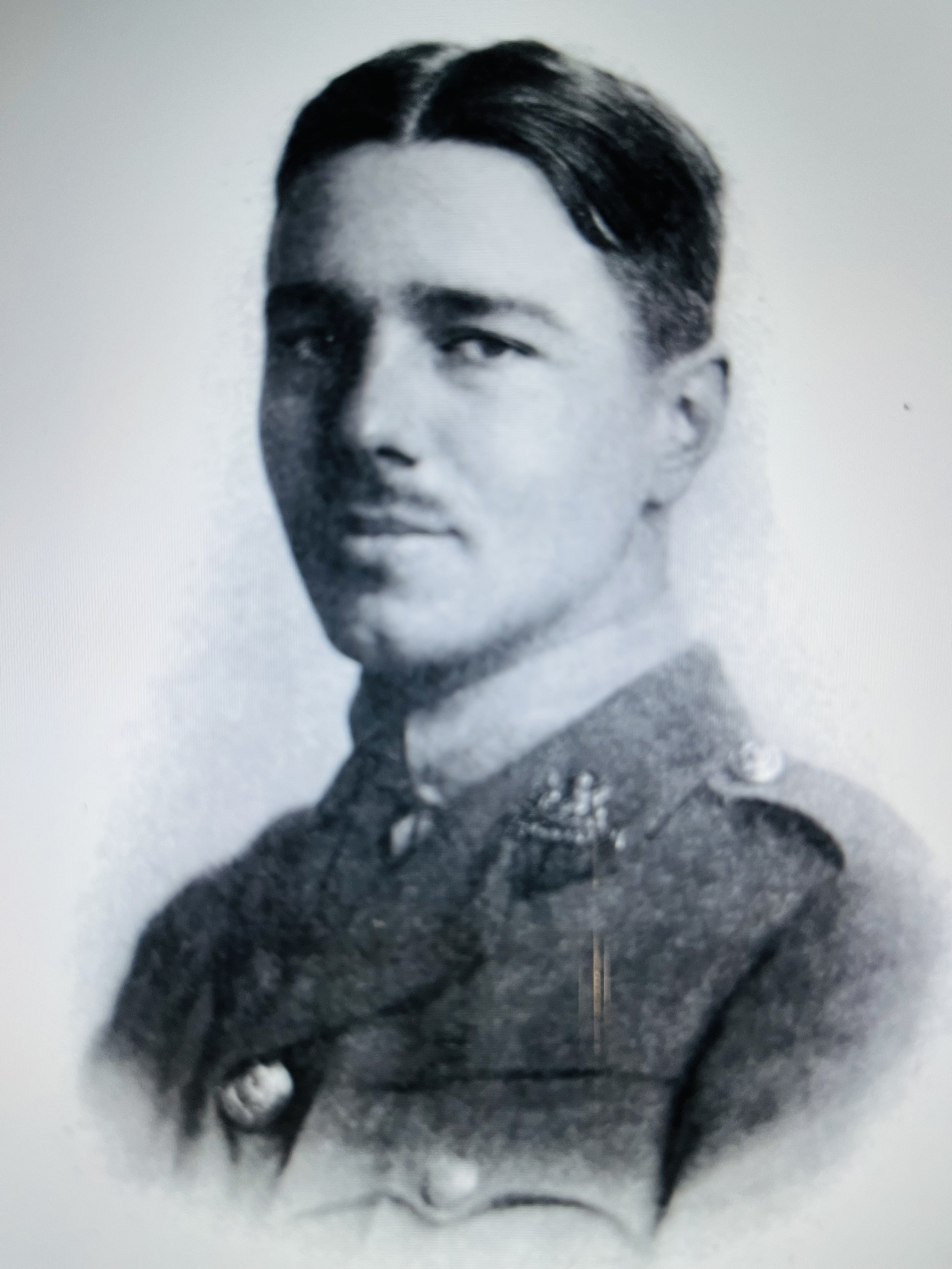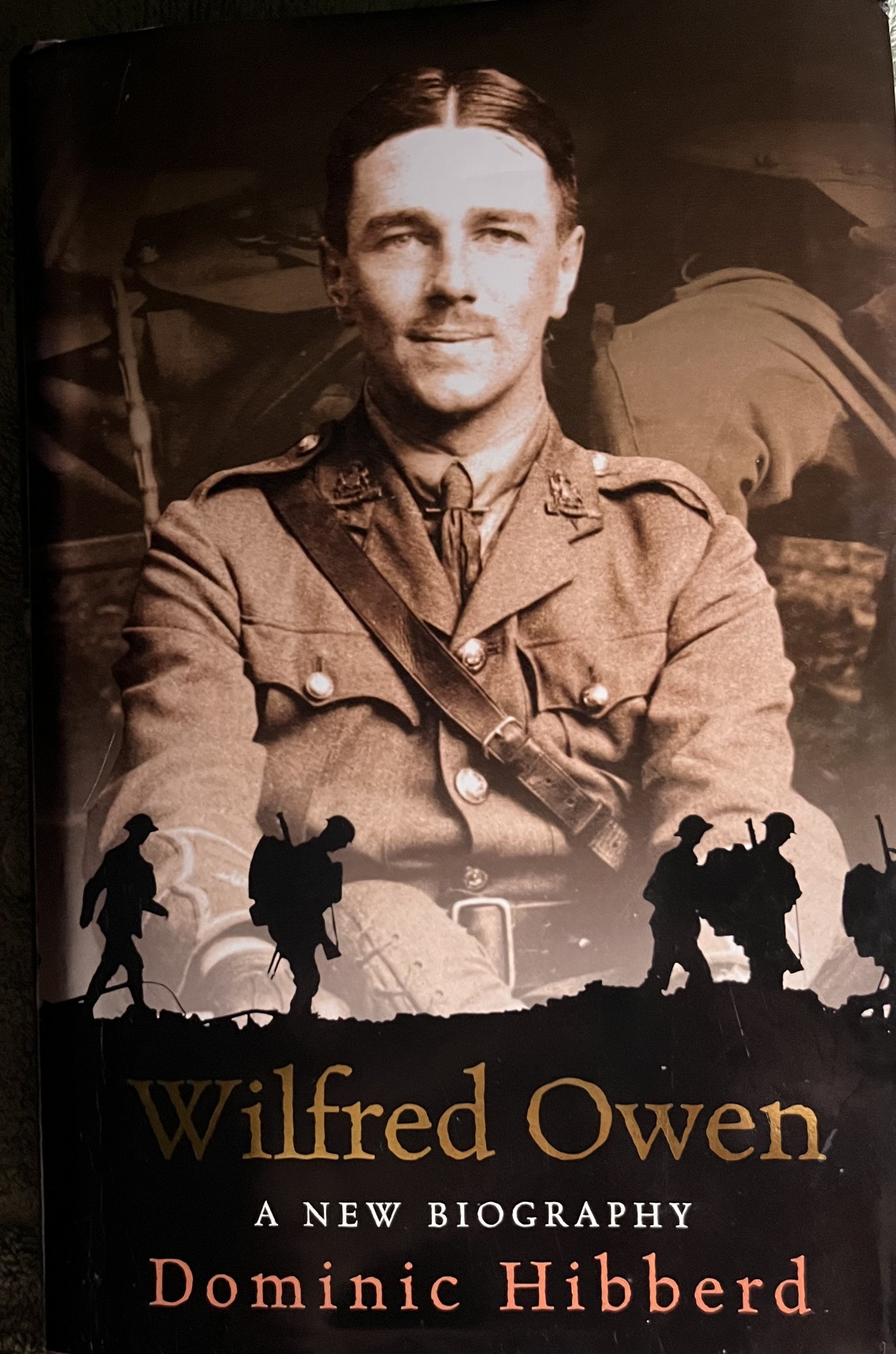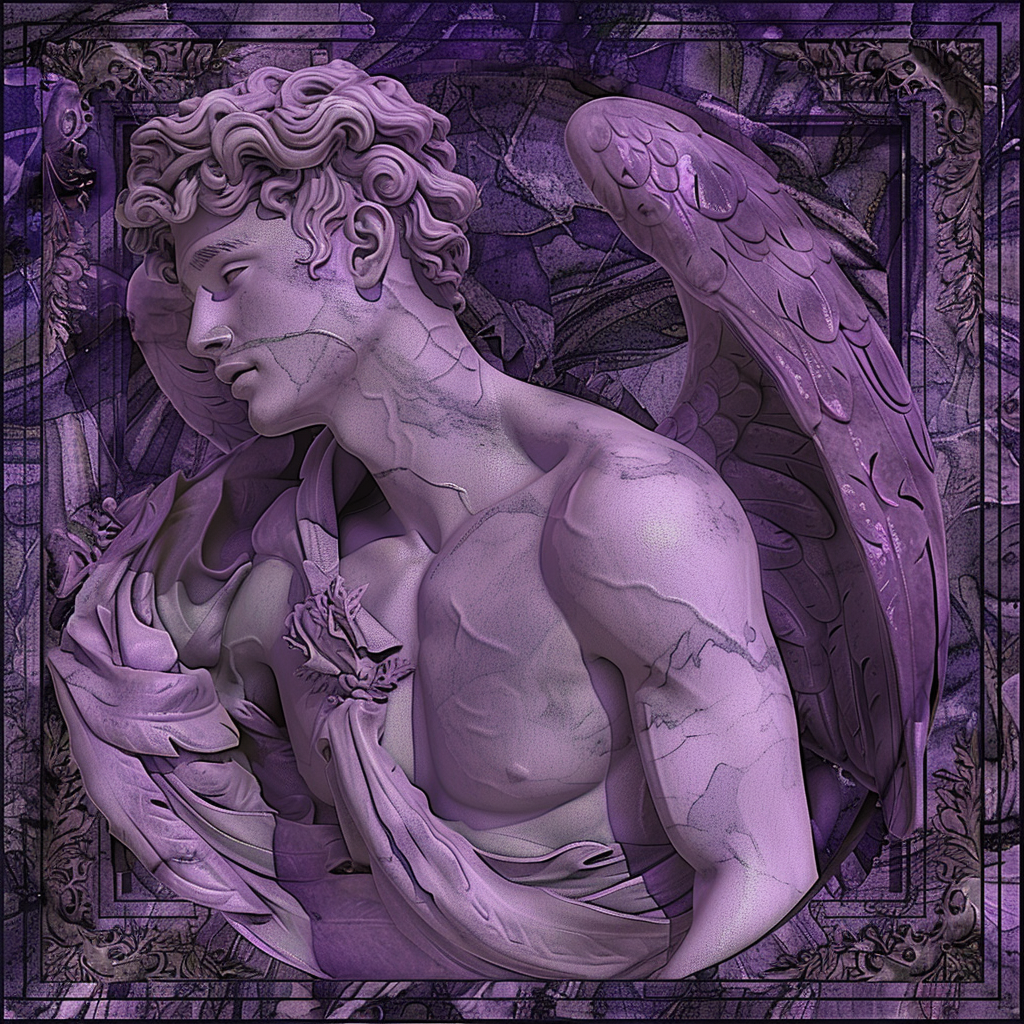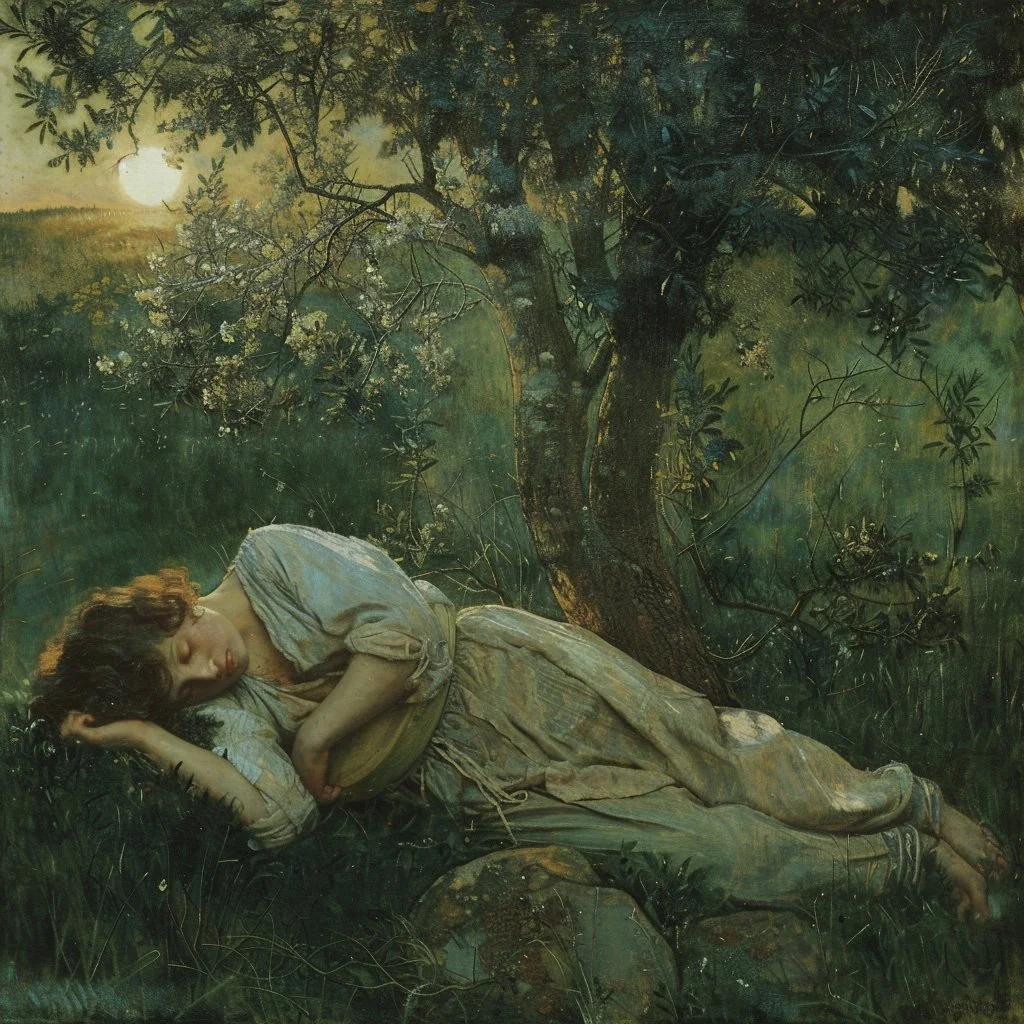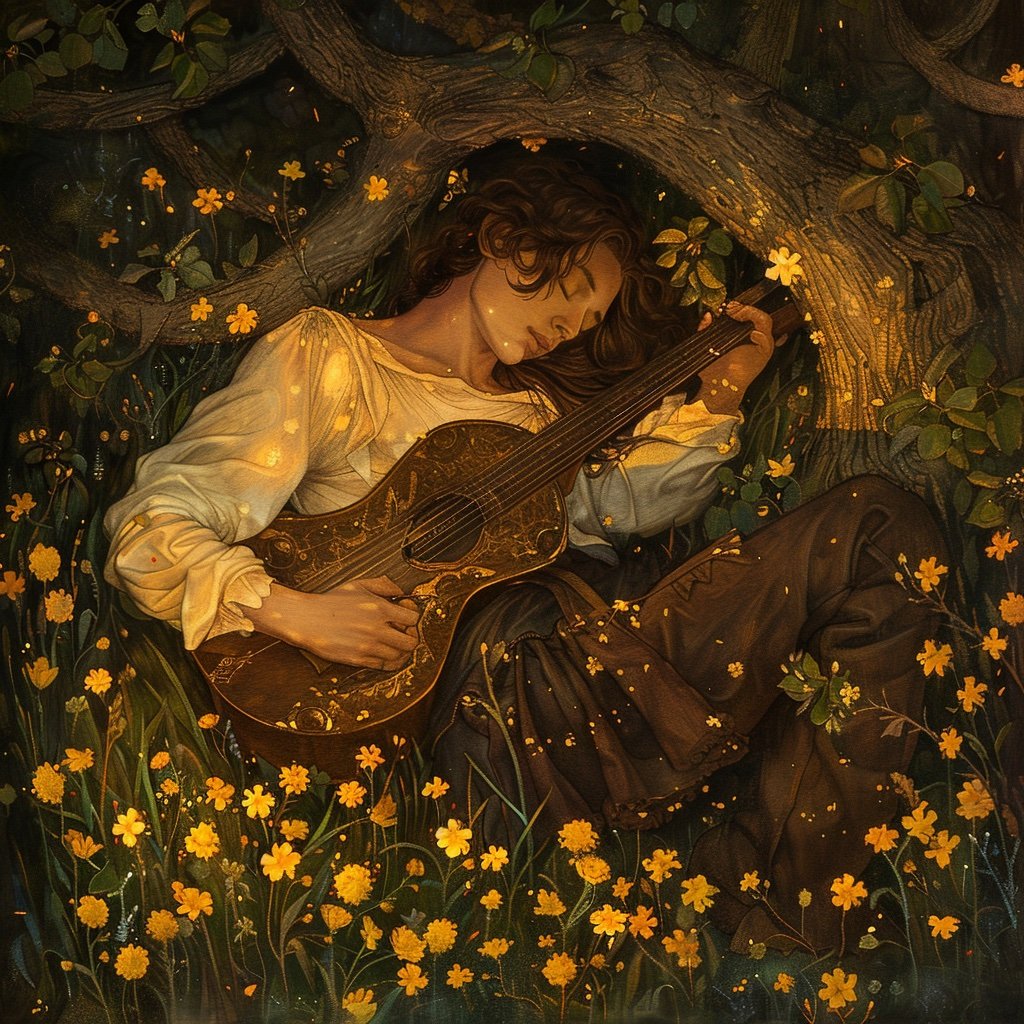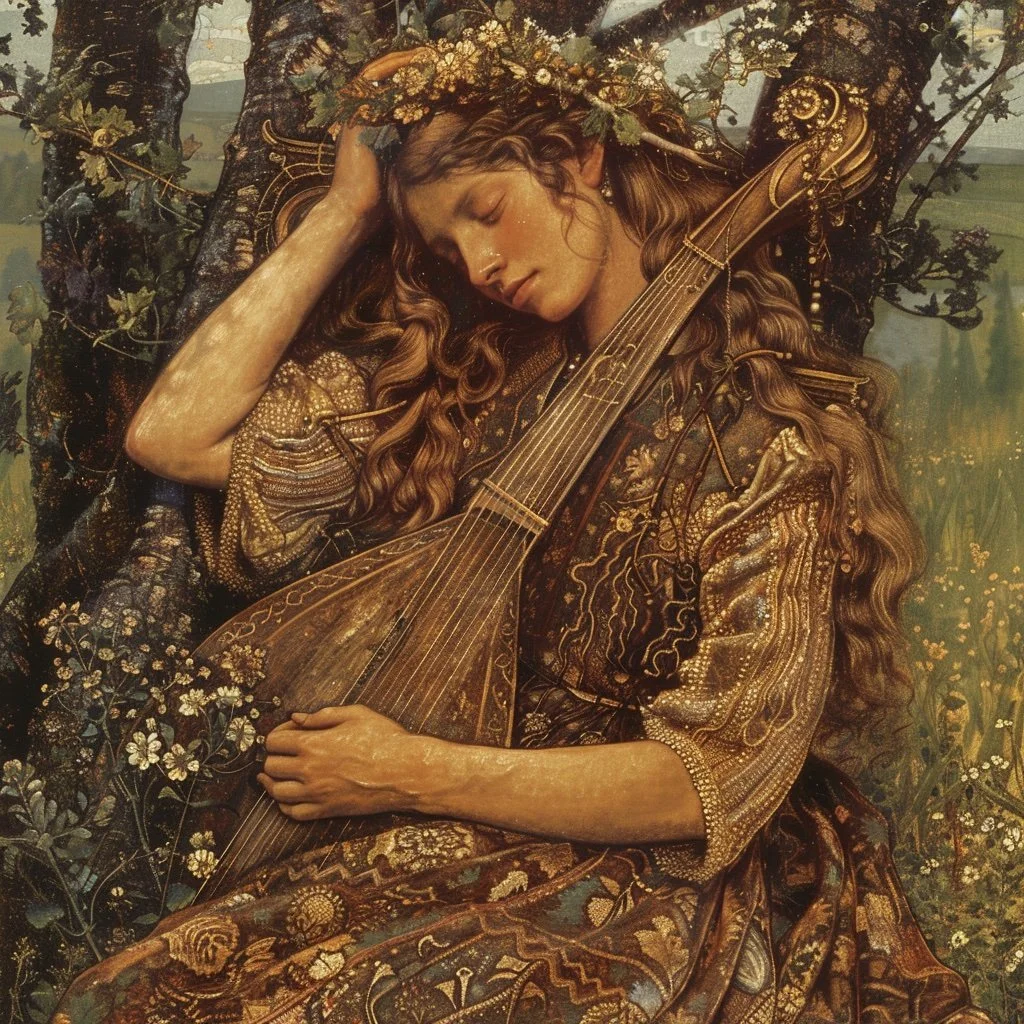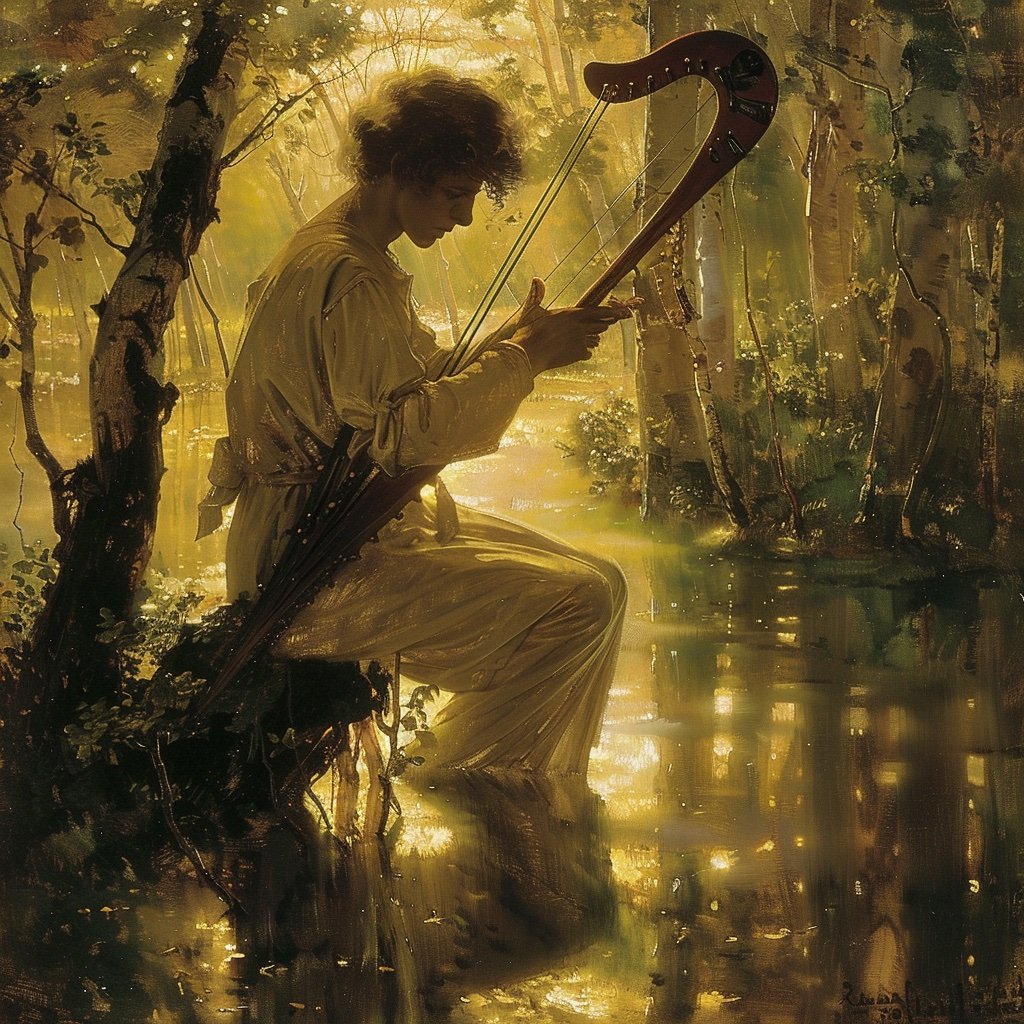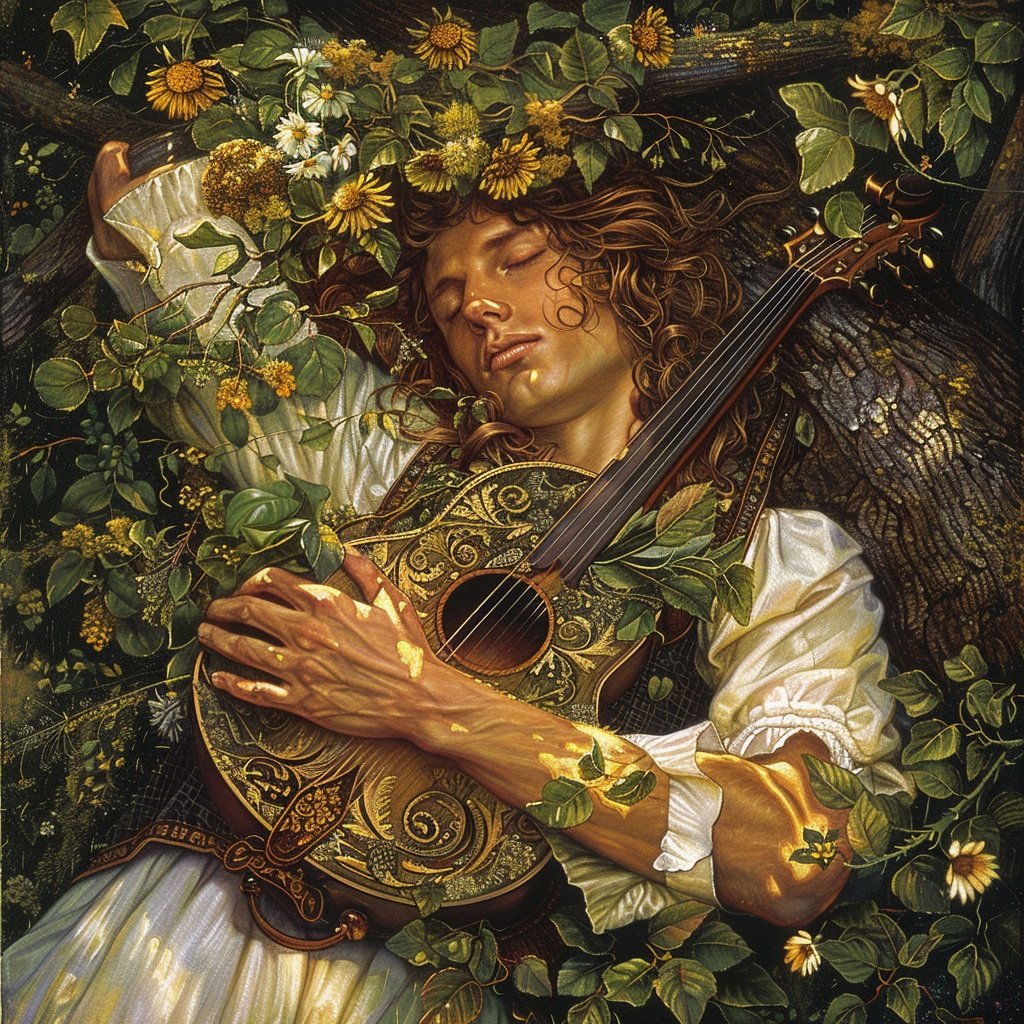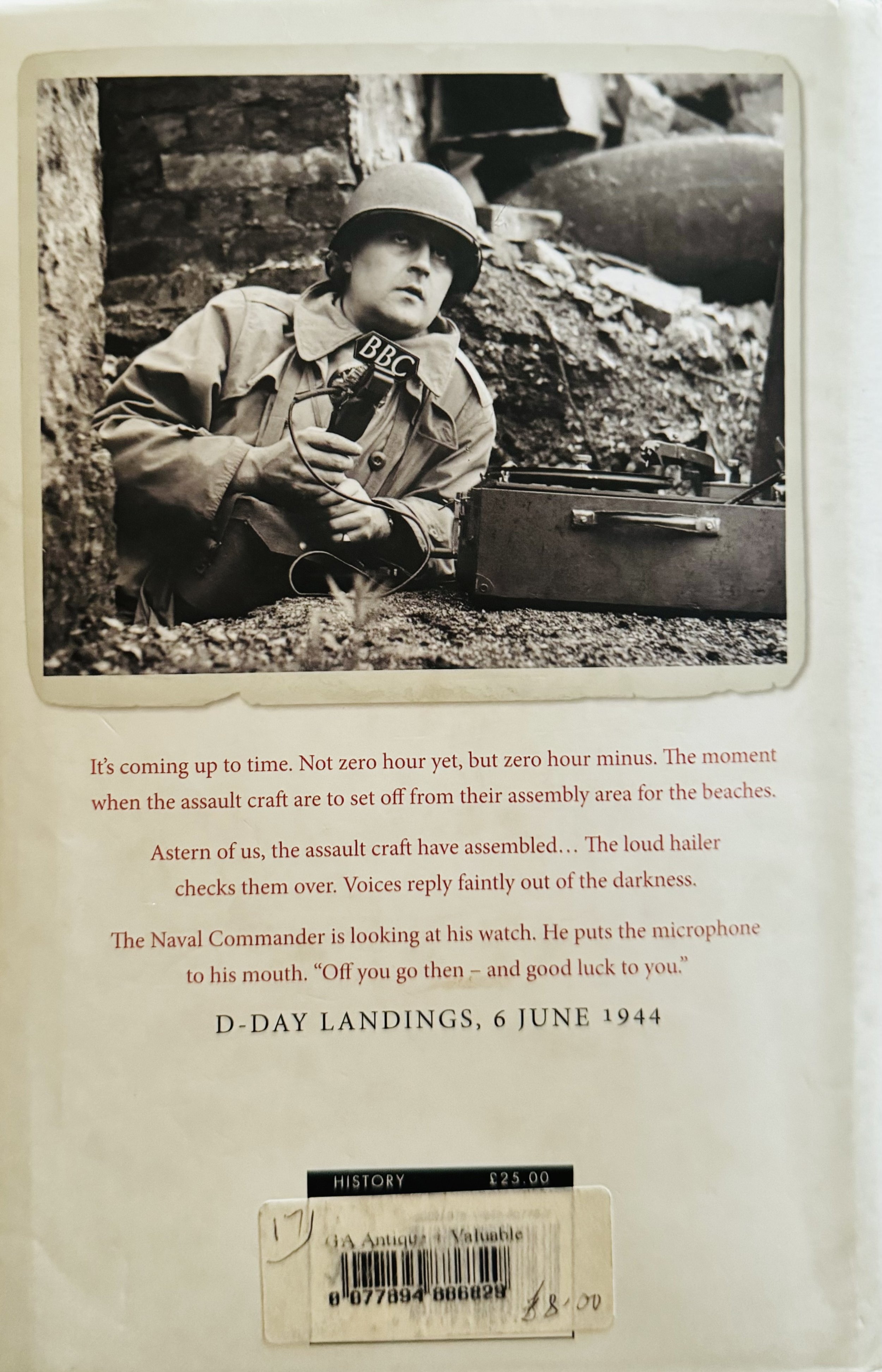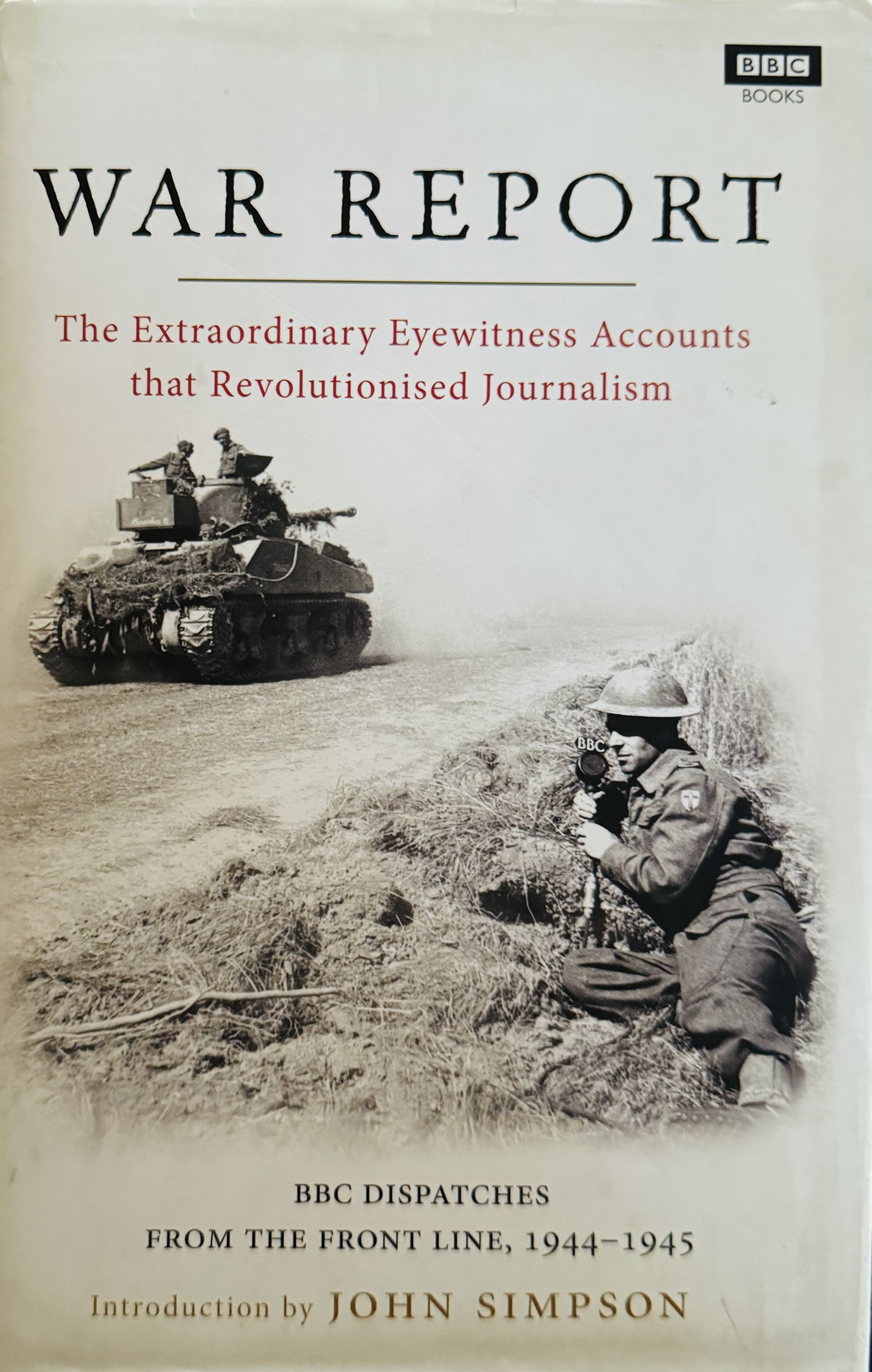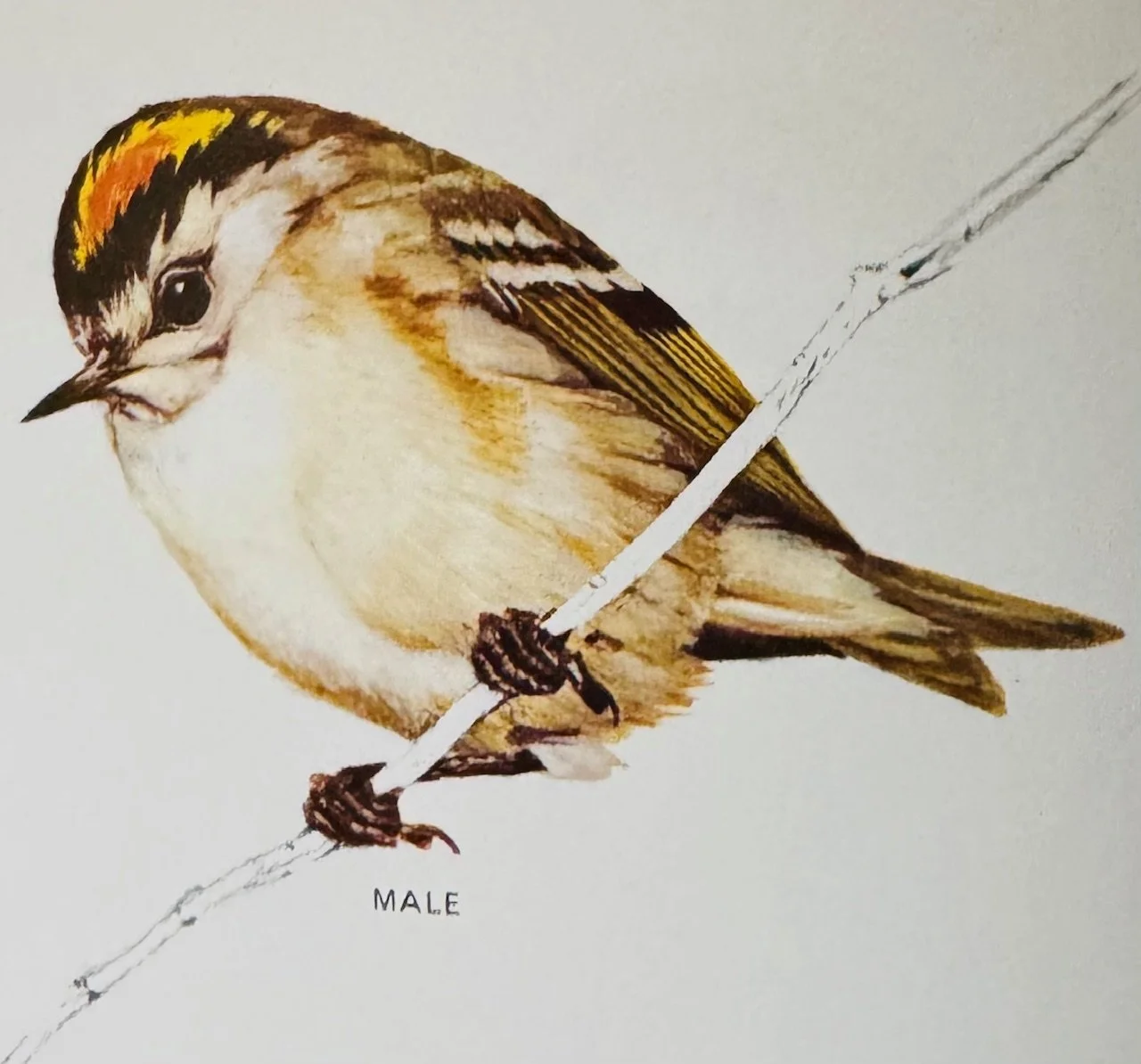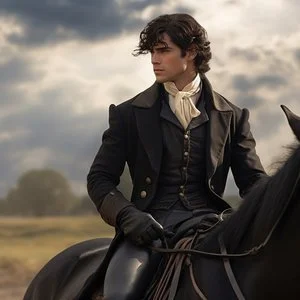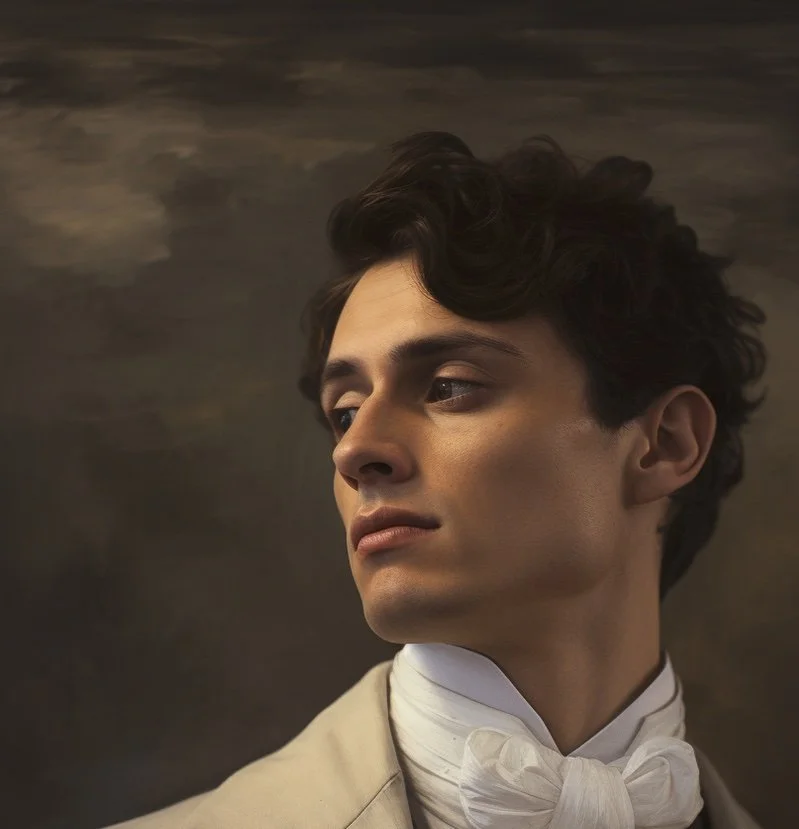OWEN ~ Lt Wilfred Owen MC ~ PURPLE (1916)
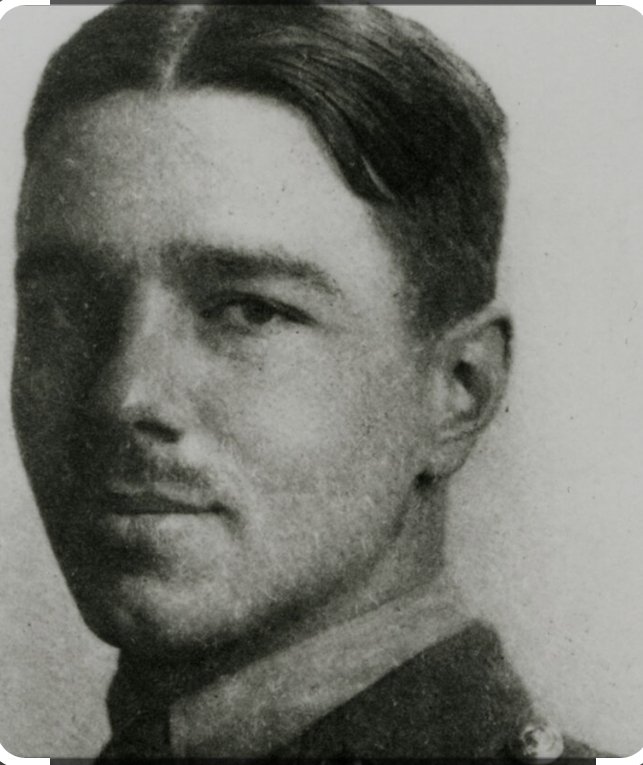
PURPLE
by
Wilfred Edward Salter Owen (1893-1918)
(Lieutenant W E S Owen MC)
Vividly gloomy, with bright darkling glows
Of nebulae and warm, night-shimmering shores!
Stain of full fruits, wines, passions, and the cores
Of all quick hearts! Yet from its deeps there blows
Aroma and romance of violets;
Softness of far land, hazed; pacific lift
Of smoke through quiet trees; and that wild drift
Of smoulder when the flare of evening sets.
Solemn, columnar, thunder-throning cloud
Wears it so stately that therein the King
Stands before men, and lies in death's hand, proud.
Purest, it is the diamond dawn of spring;
And yet the veil of Venus, whose rose skin,
Mauve-marbled, purples Eros’ mouth for sacred sin.
Dominic Hibberd, in his definitive biography of Wilfred Owen and first published in November 2003, remarks that this was one of the first sonnets written by Wilfred Owen. Owen now held the King’s Commission, ‘sonnets would be easier for a busy officer to cope with than an endless epic on Perseus.’
Although Owen is gazetted in the rank of Lieutenant, the Artists’ Rifles Regiment in the First World War, in their Regimental Memoriam, listed all in the rank in which they might have temporarily served. Thus, Wilfred Owen is listed as Captain Wilfred Owen MC, and this truly accords that respect to Wilfred Owen that one or two senior officers chose otherwise. In reading the Hibberd definitive work on Owen (ibid) one is left in no doubt about Wilfred Owen’s exemplary service in combat. As in all ages, human nature prefers that characters and personalities be defined on the basis of whether “the face fits.”
Author Note
The Great Poets
Launching this platform ~ The Great Poets ~ is exciting and befits the pending arrival of Spring, that Season wherein each year we hope, and many pray in whichever way they so wish and to whom they so wish, that somehow, Humankind will step back from the abyss, the brink upon which we teeter.
I choose Purple because this is Wilfred Owen’s favourite colour. And the Digital Artwork derives directly from Owen’s writing, concentrating upon both the colour and the depiction of Eros, the god of love, as the poet penned him.
The next poem will be one from the vast Collected Works of Rainer Maria Rilke (1875-1926), and the portrait below, again, I use my imagination by referring to his vast work under the title Letters to a Young Poet. The portrait is fictitious.
This digital artwork loosely frames the young man to whom the Austrian Poet and Writer Rainer Maria Rilke corresponded, but using artistic licence by imagining that the young poet to whom Rilke writes ~ and it was a very long and detailed correspondence ~ might be the young Rilke, as he might see himself in his mind’s eye many decades on from his youth.
Any likeness to the poet is entirely coincidental. I have used Rilke’s style of writing to provide a hint of the recipient of Rilke’s expert poetic guidance.
6 July 2025
Gallery ~ Hidden Depths
Ken Webb is a writer and proofreader. His website, kennwebb.com, showcases his work as a writer, blogger and podcaster, resting on his successive careers as a police officer, progressing to a junior lawyer in succession and trusts as a Fellow of the Institute of Legal Executives, a retired officer with the Royal Air Force Volunteer Reserve, and latterly, for three years, the owner and editor of two lifestyle magazines in Liverpool.
He also just handed over a successful two year chairmanship in Gloucestershire with Cheltenham Regency Probus.
Pandemic aside, he spends his time equally between his city, Liverpool, and the county of his birth, Gloucestershire.
In this fast-paced present age, proof-reading is essential. And this skill also occasionally leads to copy-editing writers’ manuscripts for submission to publishers and also student and post graduate dissertations.

